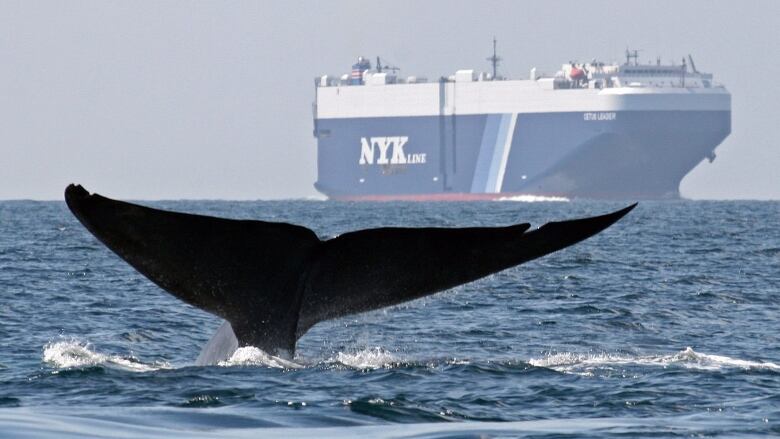Scientists say noise pollution is harming sea life, needs to be prioritized
A metastudy of more than 500 research papers says humans are responsible for altering soundscape

Far beneath the ocean surface, a cacophonyof industrial noise is disrupting marine animals' ability tomate, feed and even evade predators, scientists warn.
With rumbling ships, hammering oil drills and boomingseismic survey blasts, humans have drastically altered theunderwater soundscapein some cases deafening or disorientingwhales, dolphins and other marine mammals that rely on sound tonavigate, researchers report in a metastudy to be publishedFriday by the journal Science that examines more than 500research papers.
Even the cracking of glaciers calving into polar oceans andthe rattle of rain falling on the water's surface can be hearddeep under the sea, said lead author Carlos Duarte, a marinescientist at King Abdullah University of Science and Technologyin Saudi Arabia.
"It's a chronic problem that certainly weakens the animalsall the way from individuals to populations," said Duarte in aninterview. "This is a growing problem, one that is global inscope."
These noises and their impacts need more attention fromscientists and policymakers, particularly the effects on seaturtles and other reptiles, seabirds, seals, walruses andplant-eating mammals such as manatees, the study says.

University of Victoria marine biologist Francis Juanes, one of the study's co-authors, said that while much of the work on the effect of noise had been done on marine mammals,the researchers are seeing consistently negative effects that are pervasive among ocean-dwelling animals.
"It's not just whales," saidJuanes, adding that invertebratesand fish are also feeling the effects of noise pollution. "We've assumed that the ocean is silent for the most part. But it turns out that it isn't, and the reason it isn't is becausesound travels very far under water."
As such, theinternational team of researchers called for a global regulatoryframework for measuring and managing ocean noise.
Much of the human-caused noise should be easy to reduce, said Duarte. For example, measures such as building quieter shippropellers and hulls and using drilling techniques that do notcause bubbles and water vibrations could cut noise pollution inhalf, he said.
Having the world use more renewable energy wouldlessen the need to drill for oil and gas.
Duarte said the benefits to marine life could be dramatic,noting a resurgence in marine activity during April 2020 whenshipping noise, typically loudest near coastlines, died down ascountries went into lockdown during the COVID-19 pandemic.
But humans have not only added noise to the ocean;they havealso eliminated natural sounds, the study found.
Whaling in the 1900s, for example, removed millions ofwhales from the world's oceans along with much of their whalesong. And the chirp and chatter around coral reefs is growingquieter as more corals die from ocean warming, acidification andpollution.
Climate change has also changed the soundscape in parts ofthe ocean that are warming by altering the mix of animals livingthere, along with the noises they make.
Oceanographer Kate Stafford at the University of WashingtonApplied Physics Laboratory praised the timing of the metastudy,as the United Nations calls on governments to set aside 30 per centofthe world's land and sea areas for conservation.
"The review makes it clear that, to actually reduceanthrophony (human noise) and aim for a well-managed future...we will need global cooperation among governments," saidStafford.
With files from Johanna Wagstaffe













_(720p).jpg)


 OFFICIAL HD MUSIC VIDEO.jpg)
.jpg)



























































































